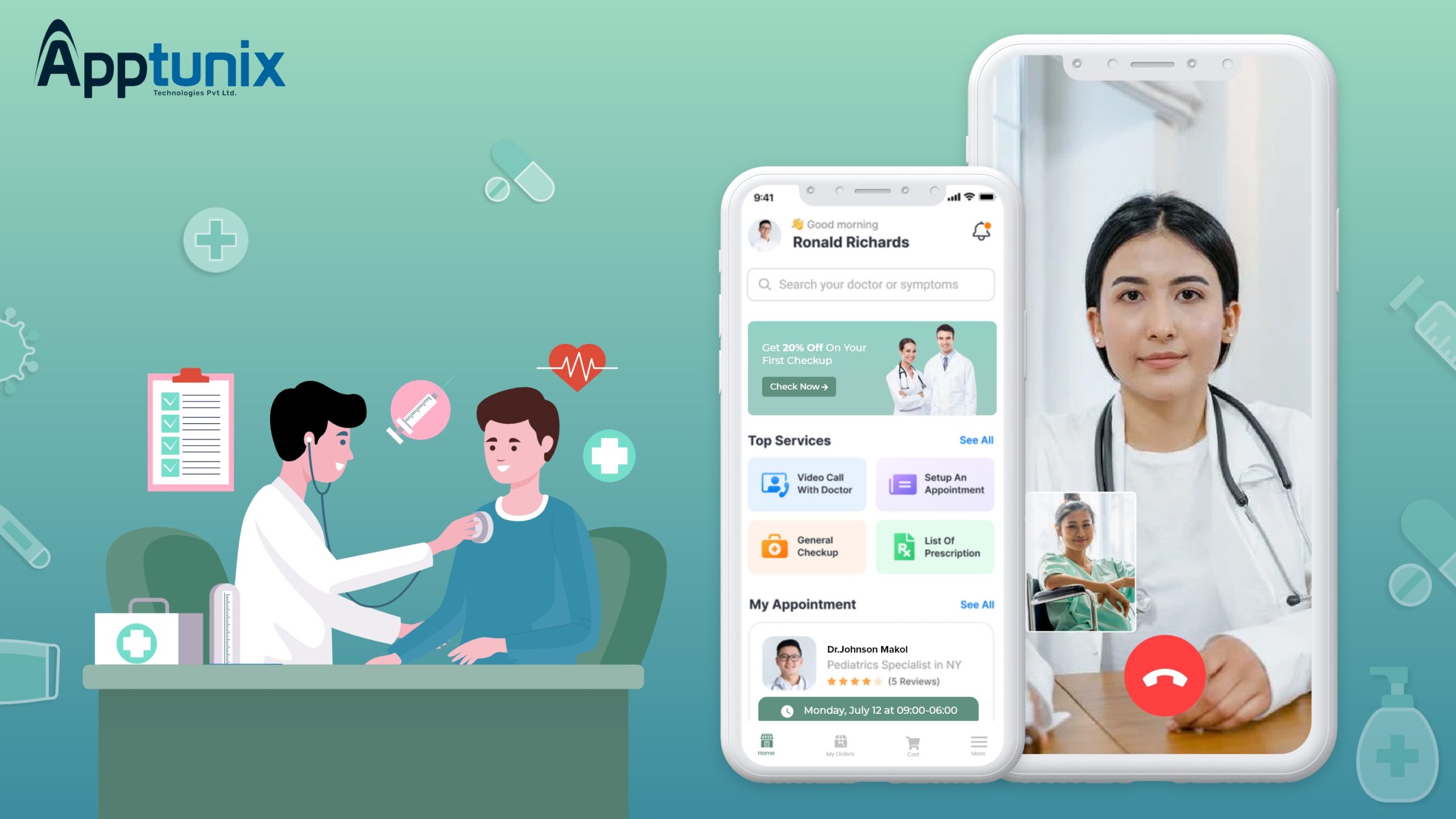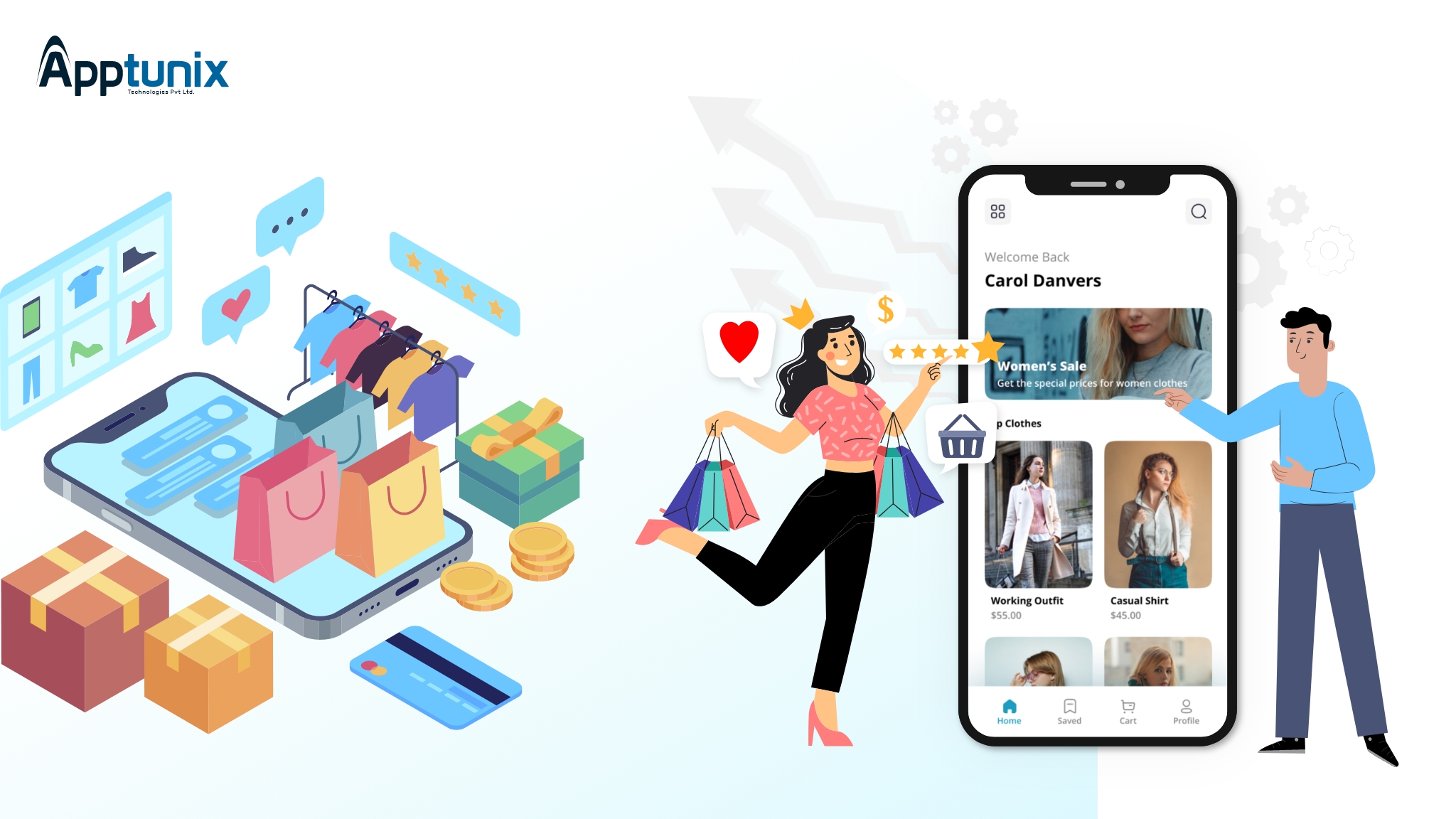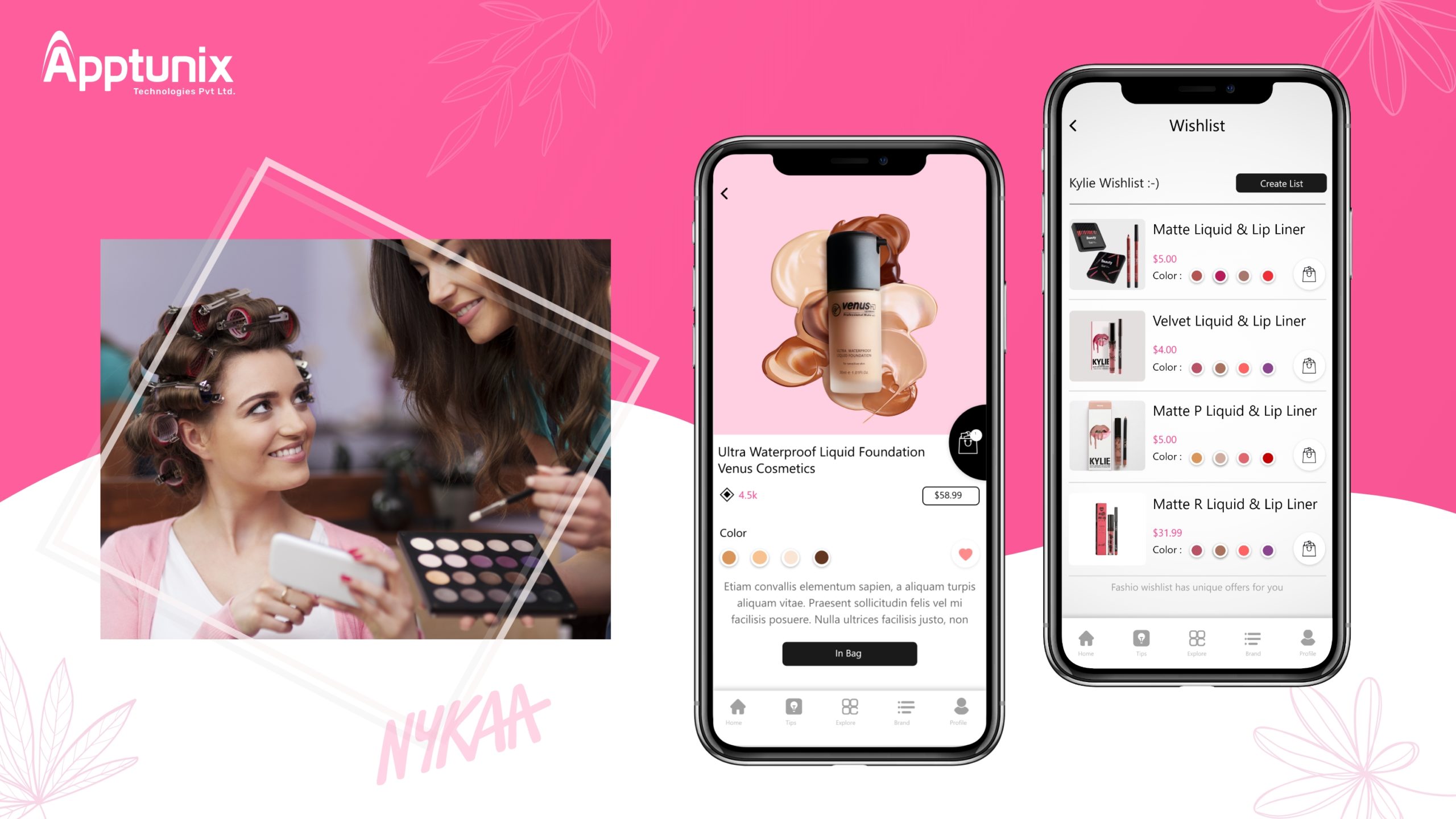Don't miss the chance to work with top 1% of developers.
Sign Up Now and Get FREE CTO-level Consultation.
Confused about your business model?
Request a FREE Business Plan.
Healthcare App Development: A Comprehensive Guide
Table of contents

Health has consistently been a subject of worry for individuals. Notwithstanding, in their busy day-to-day routines, individuals frequently think that it is hard to save time for wellbeing-related issues. Healthcare app development is the genuine answer to this worry.
From discussions and medication remedies to contemplation and wellness, healthcare services application improvement has an expansive scope of arrangements.
According to Statista, by 2025 portable health market will observe an ascent of over 38.5% CAGR, and its industry esteem is relied upon to be around $289 billion.
Furthermore, the new typical made by COVID-19 has additionally strengthened the development of distance health care. If you have a business identified with healthcare services, this present time is the perfect open door to wander into healthcare app development services.

What is Healthcare App Development?
Healthcare app development is building an app for mobile devices to help users successfully keep track of their health status in real-time. Also, mobile healthcare apps let users access a variety of medical information and health facilities with minimal taps.
For example, healthcare mobile app development is a vital element for hospital services, EHR (Electronic Health Records), patient-care service, digitized medical insurance claims and much more.
The Difference Between Healthcare App Development and Medical App Development
Though healthcare and medical app development cater the same objective of wellbeing, there is a subtle difference between both. Both these development approaches differ in their core objectives, regulatory requirements, and the nature of work they manage.
Thus, understanding these differences is crucial before you start on your mobile health app development journey.
-
Healthcare App Development
Custom healthcare app development aims to offer health-related solutions compatible with different types of smartphones and communication devices. For instance, apps for:
- Calorie count
- Physical activity tracking
- Yoga and meditation
- Nutrition
- All-in-one health assistance
-
Medical App Development
As the name suggests, medical app development consists of building software solutions for mobile devices that doctors can use to regulate their medical operations. For example, medical apps for:
- Remote patient monitoring
- Chronic disease management
- Telemedicine
- Patient data collection and management
Recommended Reading – Things to Know Before Starting Doctor Consultation App Development
Benefits of Healthcare App Development for Professionals
Developing a healthcare app can be time-consuming and costly, but it offers significant value to investors and stakeholders through the following features:
- Built-in Diagnostic Systems:
These systems collect and process data from embedded and IoT devices integrated with EHR platforms, enabling doctors to analyze and diagnose remote patients, monitor progress, and determine treatment plans efficiently. - Accurate Diagnosis:
Healthcare apps improve early and accurate disease diagnosis, leading to better treatment plans and timely healthcare delivery. For example, VisualDx is a top diagnostic support app providing personalized guidance. - E-Prescription:
E-prescribing apps enable doctors to prescribe medications accurately, adjust dosages, and revoke prescriptions as needed. This reduces pharmacy errors and optimizes time for both doctors and patients. Medscape is one such app that supports doctors in managing prescriptions effectively. - Enhanced Service and Equipment Management:
Healthcare apps allow real-time monitoring and optimization of medical equipment usage, such as tracking active on-premise ventilators, ensuring better resource management.
Benefits of Custom Healthcare App Development for Users
Healthcare apps offer numerous advantages for both medical professionals and patients, leveraging mobile technology to enhance medical service delivery and improve patient experiences. Here are some key benefits of hospital mobile apps for patients:
- High-Quality Patient Care:
Healthcare apps allow patients to monitor symptoms, chronic conditions, sleep patterns, heart rate, and overall health using IoT-connected devices or smartphone sensors. This continuous monitoring enables early detection of health issues, leading to timely interventions and improved patient care.
- Accessible Healthcare Data:
Mobile apps provide easy access to healthcare information and medical data, facilitating better patient monitoring. Patients can access health information, share data, and report symptoms to their healthcare providers from anywhere. For example, the UpToDate app tracks workflow, medical news, and user achievements. - On-Demand Accessible Care:
Healthcare apps make medical services like drug delivery, sample collection, and prescriptions more accessible and quicker to reach patients’ doorsteps. - Improved Communication:
Medical apps facilitate real-time communication between patients and caregivers. For instance, the YouCoMM app by Appinventiv allows hospitalized patients to communicate with nurses using head gestures, voice commands, and other advanced features, ensuring medical staff stays updated on patient needs.
Essential Features in Healthcare App
Following, we’ve discussed crucial features in healthcare app development. Check out:

1. Tracking
The most urgent component in any patient app is checking the patient’s fundamental signs, for example, pulse, circulatory strain, beat, glucose levels, calorie admission, and so forth.
2. Sign in
This feature offers trouble-free doctor appointments. It can also remind you of sleep, medicine intake, daily calorie consumption, water intake targets, etc.
3. Physician Information
Through this component, patients can look into specialists by forte, accessibility, area, and different boundaries. They can likewise investigate a specialist profile exhaustively before booking an arrangement.
4. Patient Information
This element empowers the product to store medicines, clinical history, reports, and other delicate information that the two patients and the doctors access whenever.
5. Chats
Through this component, patients can draw in with their doctors progressively and get opportune help. This component can work with simple easy access to medical care and can set up trust among specialists and patients.
6. GPS
Suppose a patient is away from his standard medical services facility and requires quick help. This component with incorporated guide administrations (Google Maps or some other outsider guide administration) can inform patients about adjacent clinics. It can likewise help healthcare suppliers track down a patient if there should arise an occurrence of a crisis.
7. Review & Rating
Through this element, patients can give important input and offer their treatment encounters with different patients. This will assist patients with choosing better and constructing validity and patient dedication for the health care administration.
8. Payment Mode
Mobile payment with the most recent advanced installment highlights (wallets, credit/check cards, net banking, and so on) empowers patients to securely and helpfully pay for treatment or potential protection. Patients can likewise get duplicates of bills for documentation purposes.
Step-by-Step Guide for Healthcare App Development
To build a healthcare app that offers some incentive, you have to begin with great statistical surveying and embrace the right innovation. Check the step-by-step guide for it:

Step 1: Choosing the Right Platform
Selecting the platform for your healthcare app is a crucial decision in the development process. You must decide between Android, iOS, or cross-platform development.
Opting for Android and iOS involves more time and effort. Alternatively, if cost-effectiveness is a priority, cross-platform development is a viable choice.
It’s essential to note that the platform chosen will influence overall development costs. Therefore, making the right platform choice is crucial for targeting the intended audience effectively.
Step 2: Features & Functionality
Healthcare apps play a crucial role in providing efficient and accessible solutions to both medical professionals and patients. The success of a healthcare app often hinges on its features and functionalities. Here are key elements that contribute to the effectiveness of healthcare apps:
- Electronic Health Records (EHR) Integration
- Appointment Scheduling
- Telemedicine Capabilities
- Medication Management
- Health and Wellness Tracking
- Secure Messaging
- Education Resources
- Billing and Payments
- Data Security and Compliance
Step 3: Technology Stack
To meet the specifications of your medical app, you may need to leverage diverse frameworks and tech stacks to integrate all the necessary features. This demands the proficiency of healthcare app developers capable of implementing resilient hybrid app development techniques. These considerations will have a substantial effect on the overall cost of developing the health app.
- Hybrid: Flutter, React Native
- Native: Objective C, Swift, Kotlin
- Frontend: Angular, React JS
- Backend: Java, PHP, .NET, Python, Node JS, TypeScript
Note that if you want to incorporate a basic tech stack then the cost will be less as compared to an advanced tech stack. Get in touch with expert healthcare app developers to build your healthcare app.
Step 4: UI/UX Design
Integrating UI/UX design, a healthcare app can deliver a seamless and positive user experience, fostering trust and usability among both patients and healthcare professionals. An intuitive and user-friendly interface is paramount to ensure both patients and healthcare professionals can navigate the app effortlessly.
Get in touch with an expert UI/UX designer company to take your business to the next level.
Step 5: Development Process
During the development process, developers commence the coding process, encompassing both front-end and back-end development. They integrate all features, functionalities, and other elements.
This stage is crucial as it directly influences the effectiveness of the app’s operation. The duration of the development stage can vary significantly, contingent upon the complexity of the app, requiring dedicated hours to ensure its robust functionality.
Step 6: Testing & Launching
Upon completion of the development process, the subsequent critical phase emerges – testing and launching. During the testing phase, your healthcare app undergoes both automated and manual testing. This stage is imperative to ensure the smooth operation of your app, with robust security and without any errors, mistakes, or lagging issues.
Following the testing phase, the app is prepared for launch on the Google Play Store or Apple App Store.
Now, let’s address the significant aspect often on everyone’s mind – the cost associated with building a healthcare app.
Note: An ideal medical care application is a consequence of a ton of refinement. The best methodology is to construct a minimum viable product (MVP) application first.
This will assist with saving advancement time and guarantee a faster dispatch. This will make it simpler to get client criticism, comprehend showcasing positions, and build connections.
Step 7: Compliance and Regulations
It is important to understand and follow compliance and regulations of healthcare requirements. Following, we’ve discussed important factors that impact the overall medical system. Check out:
- HIPAA Compliance:
- Healthcare apps must adhere to the Health Insurance Portability and Accountability Act (HIPAA) to safeguard the privacy and security of patients’ health information.
- Ensure robust security measures, data encryption, and strict access controls to meet HIPAA compliance standards.
- FDA Approval:
- Healthcare apps dealing with medical devices or offering health-related services may require approval from the U.S. Food and Drug Administration (FDA).
- Compliance with FDA regulations is crucial to ensure the safety and efficacy of medical devices integrated into the app.
- Patient Data Privacy:
- Prioritize patient data privacy by implementing stringent measures to protect sensitive health information.
- Communicate data collection practices, obtain informed consent, and secure patient data against unauthorized access.
Ensuring compliance with these regulations is essential for healthcare app developers to maintain the integrity, security, and ethical use of health-related data.
Important Factors To Consider While Healthcare App Development
Following, we’ve discussed important factors that you should consider while developing healthcare app development. Let’s get started!

1. Establish Business Goal
The first step in creating a healthcare app is to clearly define the goal it aims to achieve. To generate mobile app ideas for the healthcare sector, it’s essential to identify the challenges faced by healthcare providers and patients. Consider your end-user, the kind of assistance you plan to offer, and how your solution will effectively address their problems.
2. Analyze Your Competitors
Every product should possess a unique selling point (USP) that sets it apart from competitors. We analyze the USPs of our rivals, gauge market responses, and develop a distinctive feature that only our app can offer.
3. Determine Target Audience
Once you’ve identified your end user, it’s crucial to evaluate their characteristics. Researching to gather information such as age, qualifications, physical abilities, communication preferences, etc., can aid in tailoring applications that meet the specific needs of the end user.
This in-depth analysis will help determine the features and functionalities of the app, providing clarity and differentiation for a targeted objective. Deciding on these elements and functionalities will also contribute to forming a precise understanding of the healthcare app development cost budget.
4. Create A User Guide
While making a healthcare app, there is a danger that the UI/UX might be confusing or difficult to comprehend. That is the reason a developer should seriously think about making a client guide, or a progression of how-to areas so patients can undoubtedly work through getting to their clinical data and speaking with their primary care physician.
5. Contact Portals
Some healthcare apps incorporate correspondence entries, where you can talk straightforwardly to a specialist, clinical expert, or to others who are doing a similar well-being system as you. These applications have a simple and useful correspondence entryway. Assuming the entrance isn’t utilitarian, there is a danger that the clients won’t try utilizing the application.
6. Design Matters
The normal individual is bound to trust a site or application by its appearance. That is the reason when fostering an application, you should invest the same amount of energy into the UI as you would with the UX. When planning, the shading plan ought to summon feelings that are quiet and soothing. Shadings that assist with making this are blue, green, white, and different tones. You need to make a plan that is straightforward and delicate to the eye.
Conclusion
The eventual fate of health care is being driven by improvements in versatile innovation. According to stats, revenue from health apps was estimated at $8.2 billion in 2022 and is forecast to grow to $35.7 billion by 2030.
With more interest in effective, easy-to-use, and clinical applications, it is presently the ideal opportunity to put your assets into healthcare application development and make future-forward arrangements. If you are searching for a healthcare mobile app development company to offer the best healthcare app you can reach us.
Rate this article!
Join 60,000+ Subscribers
Get the weekly updates on the newest brand stories, business models and technology right in your inbox.

You may call me an internet explorer having multiple marketing skills as well as some technical skills and develop exciting blogs. Being a Content Writer, I like to traverse through the Business platforms as well. You can find me understanding or playing with the words in my blogs.

Telemedicine 2.0 - A Comprehensive Guide On What Healthcare Providers Need To Know?
Discover how the latest advancements like Artificial Intelligence in telemedicine are reshaping patient care. This comprehensive resource offers insights into the key trends and innovations driving this shift, providing valuable knowledge for healthcare professionals looking to stay ahead.
Download Now!Take the First Step
Towards Success!
Master app development with a
30-day FREE trial of our premium
solutions.



















